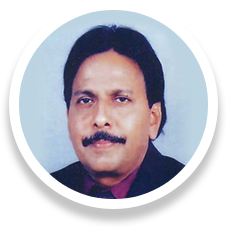Ishin Yoshimoto was a Japanese Buddhist monk who was a regular practitioner of a lay form of Buddhist meditation. Considering the enormous benefits he got from this meditation he decided to give the benefits to others also. He modified it into a simple self reflective form of meditation and named it Naikan. Naikan is a term in Japanese language meaning ‘looking inside’ or ‘self introspection’ or ‘+seeing oneself through the mind’s eye’. This modified form of meditation was found to be very useful for healing many problems of ordinary distressed people. It was in 1950s Yoshimoto introduced Naikan in jails to help prisoners who were under acute stress. Naikan became popular in Japan by 1960s and some psychiatrists started using this as a form of psychotherapy to treat their patients. Today, Naikan has become the most popular form of psychotherapy in Japan and in some neighbouring countries.
How to practice Naikan?
As already mentioned, Naikan is a form of self introspection or self reflection. This involves asking yourself three questions and reflecting on them. These questions will help you to define your inter personal relations with a significant person in your life.
The three questions are as follows
- What have I received from the other person?
- What have I given back to that person?
- What troubles and difficulties did I cause to the person?
The other person can be your wife, a family member, your friend or any other significant person in your life.
The purpose of Naikan is to develop a better and true understanding of your own life and your relationships by reflecting on them. By doing this, it’s possible to gain a realistic pulse of your own life and to analyse and solve the problems in the relationship with others important to you.
Researchers have found that Naikan can help to solve different problems of inter personal relationships and lack of social support. When you analyse and assess what all things you received from a person, you will understand that the help you received from him is not insignificant or silly. Then you will naturally become obliged and thankful to him. Again, when you ask yourself what have you given back or what troubles did you cause to him, you will clearly understand the real value of the help and concern you received from him. Then naturally you will become more grateful to that person and will even desire to express your gratitude by helping him in return. This will assist you to strengthen your relationship with that person.
Naikan as a therapy
Naikan is now widely accepted as an easy method for eradicating all types of negative thoughts and emotions. Its practice helps people to solve their relationship problems in family as well as in community and work place. It’s a powerful practical tool that helps to know ourselves and the quality of our relations with significant people in our lives.
We can have an easy access to our unconscious mind by the practice of Naikan. It helps to purify our mind and soul and to feel gratitude for those people, places, situations and things directly related to our lives. It enables to control the wandering mind and fill it with positive emotions of gratitude, love and respect to others.
Naikan practice will make you understand yourself and others better. It will aid you to find a solution to the problems related with partnerships, conflicts, controversies, diseases and difficult work environments.
Naikan can be practiced by all irrespective of age, culture, religion or beliefs. It can assist you to look deep into your mind and find your own inner peace even under difficult and adverse circumstances.
Naikan is effectively used as psychotherapy by psychiatrists in the treatment of drug and alcohol addiction, depression etc..
Naikan and Spirituality
Naikan is actually a practice of mindfulness and will help you to have a close awareness of your attitudes, thoughts and actions. It can purify your mind and sanctify your soul by eliminating the negative emotions. Regular practice of Naikan will help you a lot in your spiritual journey.
Naikan meditation practice
You can do Naikan meditation for about thirty minutes at the end of the day. Sit comfortably in a noiseless place with a convenient posture with your spine straight and eyes closed. Be aware of your breathing for some time. When you feel relaxed ask yourself these questions one by one and reflect on each.
What have I received today?
Now you reflect specifically on this question alone. You can recall as many things as you can. How were you benefitted from someone’s actions, maybe a warm greeting, a kind word, an advice or help? Remember these with gratitude.
As you reflect on these you will feel that you owe much to the world and people around you. This insight will make you more humble and you will feel a deeper sense of gratitude.
What have I given today?
After reflecting on the first question for 8to10 minutes, move your attention to the second question. Think of what you have given to others. What help you have done to someone else, maybe your wife, friend, a stranger or your pet? What you have done for a positive change in the world? Reflect and ponder on this for a few minutes.
What difficulties and troubles did you cause today?
After the second stage of reflection, bring your attention to the third question. This may be hard, but important. It may cause feelings of guilt and shame. But its intention is to get a realistic view of your life.
Generally we are bothered about the troubles and difficulties caused by others. Now on the contrary, we will understand that we are the source of many difficulties to others. This realization can be a blow to your inflated ego and make you more humble and grateful to others.
During Naikan meditation you can reflect on the events of the day or on a particular person significant in your life like your partner, child, parent, friend co worker or your pet.
During the meditation you are not expected to analyse or judge your intentions or feelings. You simply need to witness them none judgementally. Your self- cantered thinking needs to be shifted to reality based thinking.
Naikan centres
There are several Naikan centres in Japan, Australia, Germany, Switzerland, Spain and U.S.A. In some centres Naikan is used to treat psychological problems like drug addiction, depression etc. Some centres are arranging Naikan retreats lasting for five to seven days.
Anyway Naikan has been accepted world wide as a guided self reflection tool for meditation. Through Naikan practice, you develop a natural and profound sense of gratitude for the enormous blessings bestowed on you by others. You will become mindful of the kindness of others.
As the famous Japanese poet and author Gregg Krech pointed out; ‘To live a life of gratitude is to open our eyes to the countless ways to which we are supported by the world around us.’
Image credits: pixabay

He is a Human Resource Consultant, National Trainer, and Counselor. Formerly he was the Deputy Chief Engineer, Kerala State Electricity Board and is still working as an external faculty of HRD Programmes of KSEB. He is also a faculty of Department of Management Studies, Mar Augusthinose College, Ramapuram, under M.G.University, Kerala. He is the PG course co-ordinator of MHRM.
He is a columnist in several Magazines, like ‘Business Deepika’, ‘Creative Business’, ‘Donbosco’ etc. His articles have been published in many magazines and journals. His several speeches have been aired by All India Radio. His interviews on various subjects have been telecasted by Power Vision TV.
He is the author of five best-selling books
- ‘Stress-Manassasthra- Aathmeeya Pariharangel’. (Current Books, Thrissur) 4th Edition
- Vijayiyude Vyakthithwam (Current Books, Thrissur)
- Jeevitham Santhushtamakan, Nithya Yauvanam Nedan.(CSS, Thiruvalla)2ndEdition
- Emotional Intelligence-Jeevithavijayathinu (CSS, Thiruvalla)
- Vijayarahsyangal (Current Books, Thrissur)
As a trainer, he has conducted more than a thousand seminars and workshops for teachers, parents, students, executives and others, on several subjects like Stress Management, Time Management, Personality Development, Emotional Intelligence and Spiritual intelligence for Excellence, Communicative Skills, Assertiveness, Motivation, Study Skills, Effective Parenting, Counselling Skills etc. He is an external training faculty of Power Engineers Training and Research Centre of KSEB. He is an external faculty of IMG Cochin. He is also the Secretary of Upasana Cultural Centre, Thodupuzha.




















